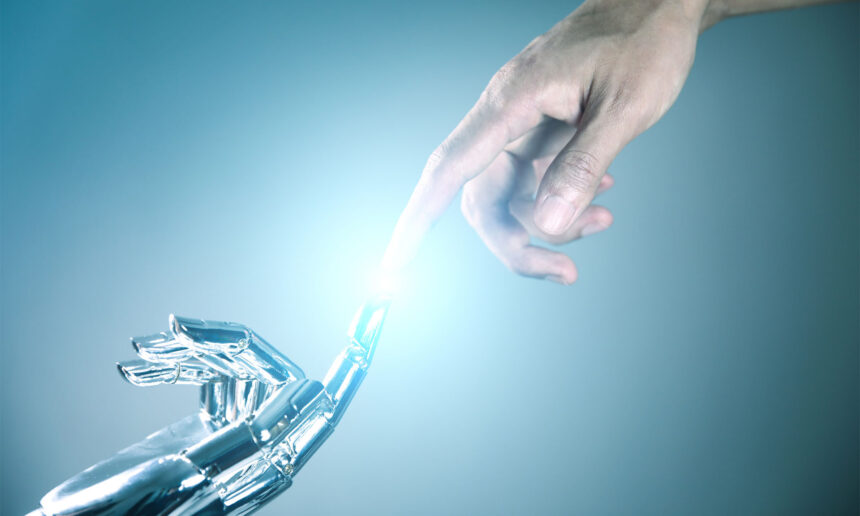The intersection of artificial intelligence (AI) and the Bible is a complex and fascinating topic, sparking debate and discussion among theologians, ethicists, and technology experts alike. While the Bible doesn’t explicitly mention AI, some passages can be interpreted as relating to it or raising questions about its development in light of biblical teachings.
“But thou, O Daniel, shut up the words, and seal the book, even to the time of the end: many shall run to and fro, and knowledge shall be increased.” Daniel 12:4
Artificial Intelligence and the Bible Perspectives
Here are some key perspectives on the relationship between AI and the Bible:
Supportive interpretations:
- AI as a tool for good: Some argue that the Bible doesn’t condemn technology or tools in itself, including AI. Just like any tool, AI can be used for good or evil, depending on the intentions and actions of its creators and users. For example, AI could be used as a tool with immense potential for good, capable of aiding humanity in areas like healthcare, scientific discovery, and problem-solving, aligned with Christian values.
- Human ingenuity:Â The Bible often celebrates human creativity and innovation. Passages like Proverbs 22:29 (“Seest thou a man diligent in his business? he shall stand before kings; he shall not stand before mean [obscure]Â men.”) could be seen as encouraging the development of technology like AI, as long as it serves good purposes.
- Knowledge and understanding: The Bible emphasizes the value of knowledge and understanding. Passages like Proverbs 2:6 (“For the LORD giveth wisdom: out of his mouth cometh knowledge and understanding.”) could be seen as supporting the pursuit of knowledge through AI, as long as it doesn’t replace trust in God as the ultimate source of wisdom.
Cautious interpretations:
- Idolatry and dependence:Â Some passages warn against idolatry and misplaced dependence on anything other than God. Passages like Exodus 20:3 (“Thou shalt have no other gods before me.”) could be seen as cautionary about the potential dangers of AI becoming an object of worship or excessive reliance.
- Blurring the lines between human and machine: The Bible emphasizes humans as unique creations made in God’s image, with the capacity for creativity, consciousness, and moral agency: Genesis 1:27 (“So God created man in his own image, in the image of God created he him; male and female created he them.”). This raises questions about how AI, which lacks these qualities, might fit into the divine plan. Some worry that advanced AI could challenge this distinction, raising ethical and theological questions about what it means to be human.
- Unforeseen consequences:Â The Bible warns against the potential negative consequences of human actions, even those with good intentions. Passages like Proverbs 16:9 (“A man’s heart deviseth [plans] his way: but the LORD directeth [establishes] his steps.”) could be seen as a reminder that the development of AI should be approached with caution and humility, acknowledging the potential for unforeseen risks.
Whether the Bible supports or warns against AI is a matter of interpretation and how biblical text is approached. It’s important to consider the various perspectives, engage in critical thinking, and form conclusions based on faith and understanding.
Can Technology and Theology Coexist?
Here are some additional points to consider:
- The Bible offers a divine perspective and teachings about human nature, creativity, responsibility, and the relationship between God and humanity. These themes can provide valuable insights for navigating the development and use of AI.
- Open dialogue and collaboration between theologians, ethicists, and technology experts are crucial for ensuring that AI is developed and used responsibly and ethically, aligning with our values and serving the common good.
- The future of AI is still unfolding, and it’s up to us to shape it through our choices and actions. By remaining informed, engaged, and proactive, we can work towards a future where AI benefits humanity and reflects our highest values.
Delve deeper into this fascinating topic at the intersection of technology and theology by discussing it with your local church leaders, who can offer you guidance.
Here are some additional resources that you may find helpful about artificial intelligence and the Bible:
- What Does the Bible Say About Artificial Intelligence? by Jason Thacker (Zondervan)
- Artificial Intelligence by GraceLifeThoughts
- A.I. Predicted in the Bible? by Encounter Today
- What Does the Bible Say About Artificial Intelligence? by OpenBible.info


